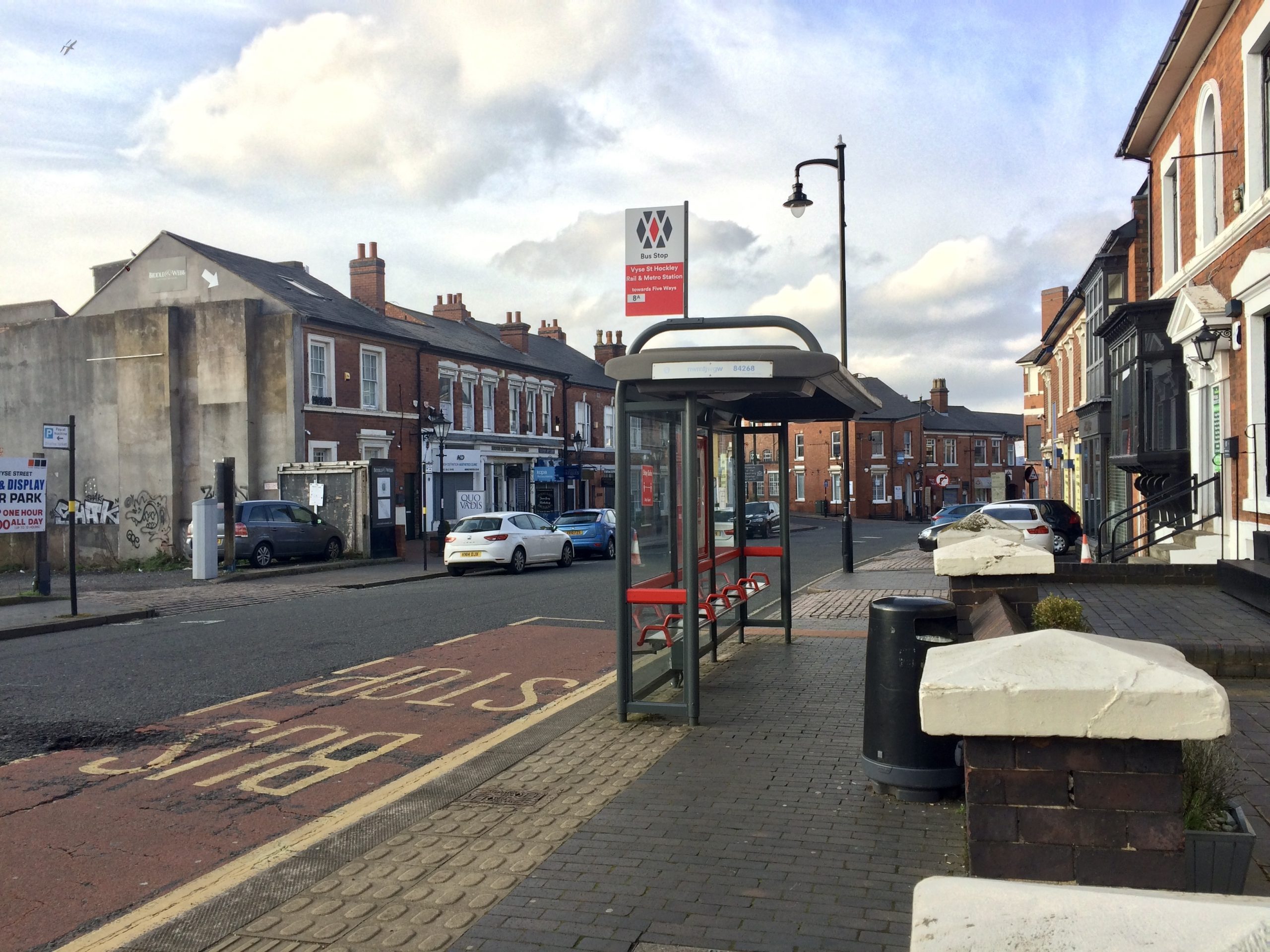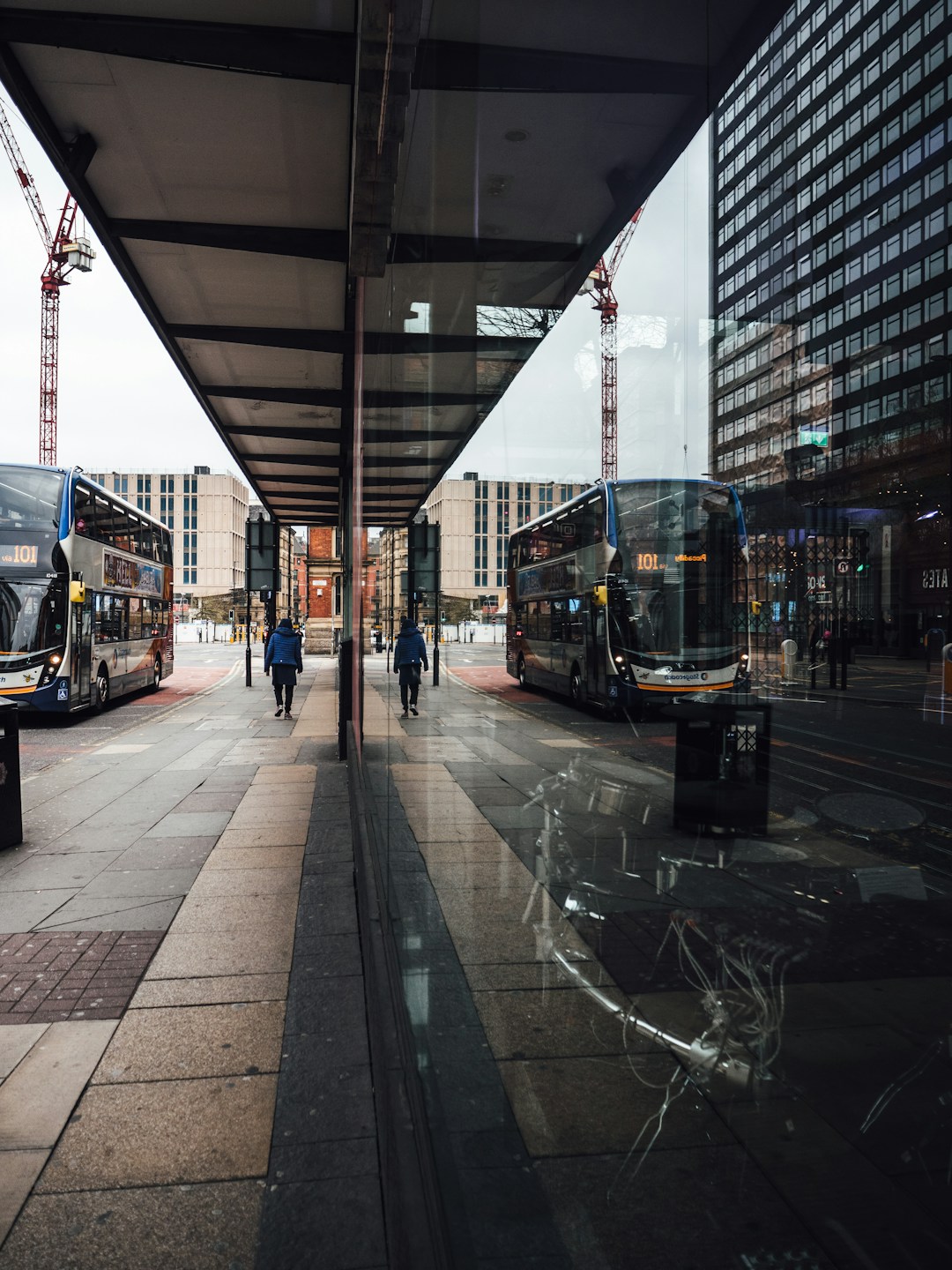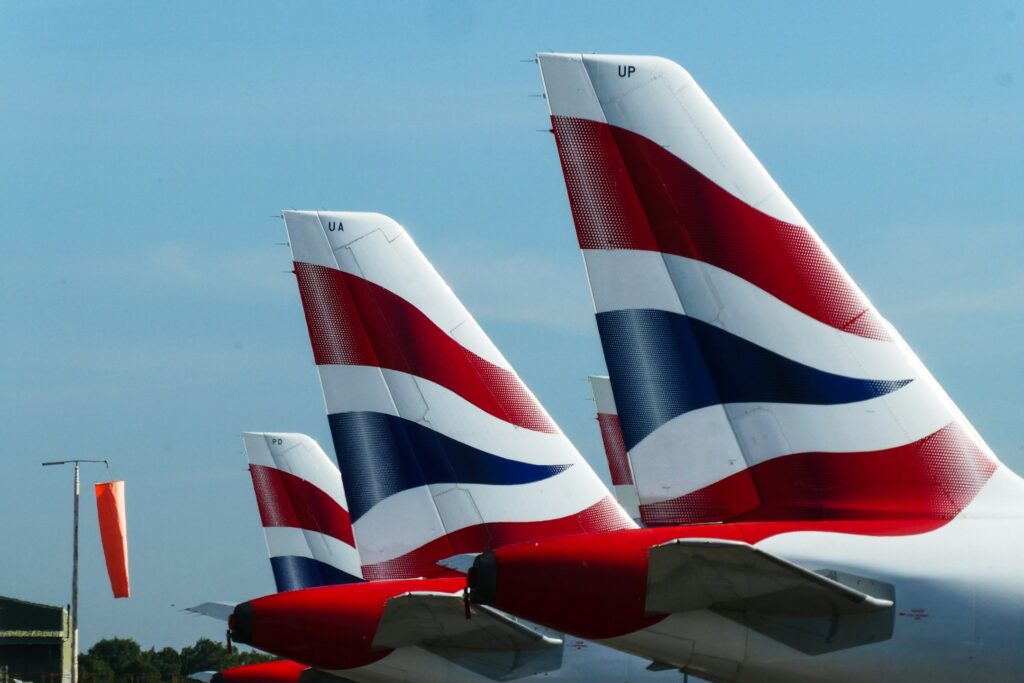Vision:
Bus service control
- Last update: 14/12/2023
- Version: v1.0
The majority of bus services in Great Britain right now are run for profit, and are as a result a convoluted mess. It's time to take action.

At Enroute, we strive to create a greener, economically-friendly, and community-influenced public and active transport network, encouraging modal shift from road and private car to sustainable modes of transport. We elaborate on our aims with our comprehensive vision for the transport network in 2050.
Our 2050 Vision draws on our work and the published work of other organisations. Whilst we highlight where our vision aligns with the views of other organisations, the 2050 Vision represents Enroute’s views and should not be taken to represent those of other organisations.
Introducing the Buses Commissioner for Great Britain
We propose a new Central Government quango, operating underneath the Department for Transport, known as The Buses Commissioner for Great Britain. The agency would be responsible for:
- Working with Transport Authorities to deliver the appropriate funding to run bus services or franchise out to run bus services.
- Supporting the appointment or removal of bus operators in Transport Authorities where bus services are not running effectively.
The Buses Commissioner for Great Britain will also be responsible for ensuring neighbouring bus companies and Transport Authorities work together to integrate services, and potentially run services partially into their neighbouring areas.
The Commissioner will be controlled by civil servants with experience in bus operations – not politicians who will be naturally biased to their party and the area in which they represent.
Control of bus services
In urban areas
In urban areas, all bus services should be operated under a franchise agreement with an existing bus company, in an agreement with the Transport Authority.
Alternatively, the Transport Authority can run bus services themselves with extra funding from the Department for Transport and The Buses Commissioner for Great Britain. For example, Nottingham City Transport, funded and owned by Nottingham City Council.
In rural areas
Bus franchising in rural areas may not be so attractive for bus companies to bid for. That’s why Transport Authorities may run bus services themselves. Some TAs in rural areas may serve large areas with varying urban/rural splits. That’s why TAs can choose to allocate specific areas within their operations to be controlled by a franchise.
- No further reading linked
- 14th December 2023: Initial publication
Explore some of our other positions




